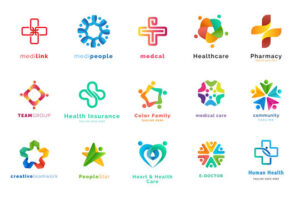Introduction
Health insurance is more than just a financial safety net it is a vital tool for securing your health and well-being. In today’s world, where healthcare costs continue to rise, having a solid health insurance plan can save you from unexpected medical expenses and ensure access to quality care. Whether you’re an individual, a parent, or an employer, understanding the ins and outs of health insurance is key to making the right choices. In this blog post, we’ll explain what health insurance is, why it’s important, how it works, and what to consider when choosing a plan. This guide is ideal for anyone looking to make informed decisions.

Health Insurance
What Is Health Insurance?
Health insurance is a contract between you and an insurance company that provides financial coverage for medical expenses. In exchange for paying a monthly premium, the insurer agrees to cover part or all of your healthcare costs, including doctor visits, hospital stays, surgeries, medications, and preventive services.
There are different types of health insurance:
Private health insurance (often offered by employers or purchased individually)
Public health insurance (such as Medicare, Medicaid, or national health programs depending on your country)
Health Maintenance Organizations (HMOs)
Preferred Provider Organizations (PPOs)
Why Is Health Insurance Important?
1. Protection Against High Medical Costs
One of the biggest reasons to have health insurance is to protect yourself from unexpected, high medical bills. A single hospital stay or emergency surgery can cost thousands of dollars. They helps offset these costs.
2. Access to Quality Healthcare
Health insurance often opens doors to better healthcare options. You’re more likely to receive timely medical attention, regular checkups, and preventive care, which can detect health issues early before they become serious.
3. Peace of Mind
With them, you have the assurance that you’re covered in case of illness, accidents, or emergencies. This peace of mind allows you to focus more on your recovery and well-being than worrying about bills.
4. Encourages Preventive Care
Most of their plans cover preventive services such as vaccinations, screenings, and annual checkups. These services are crucial for maintaining long-term health.

Health Insurance
You can also read: How do you pay for insurance in Canada
How Health Insurance Works
They can seem complex, but understanding the key terms and how they function can make it easier to navigate:
1. Premium
This is the monthly amount you pay to maintain your health insurance coverage.
2. Deductible
This is the amount you must pay out-of-pocket for medical services before your insurance kicks in.
3. Copayment (Copay)
A fixed fee you pay for certain services (e.g., $25 for a doctor’s visit), usually after meeting your deductible.
4. Coinsurance
This is the percentage of costs you share with the insurance company after meeting your deductible (e.g., 20% of a hospital bill).
5. Out-of-Pocket Maximum
The most you’ll pay in a year for covered services. Once you reach this limit, your insurance pays 100% of the covered services.
Types of Health Insurance Plans
1. Health Maintenance Organization (HMO)
Requires members to use a network of doctors and hospitals
Requires a referral from a primary care doctor to see a specialist
Lower premiums and out-of-pocket costs
2. Preferred Provider Organization (PPO)
Offers more flexibility in choosing doctors and specialists
No referral needed for specialists
Higher premiums and out-of-pocket costs
3. Exclusive Provider Organization (EPO)
Requires using the plan’s network, but no referrals needed
Lower cost than PPOs, but less flexibility
4. Point of Service (POS)
Combines features of HMOs and PPOs
Requires a referral to see a specialist
You can go outside the network, but at a higher cost
How to Choose the Right Plan
When choosing their plan, consider the following factors:
1. Your Healthcare Needs
Do you need regular prescriptions? Frequent doctor visits? Consider your current health status and history to choose a plan that covers what you need most.
2. Cost
Compare premiums, deductibles, copays, and coinsurance. A plan with a lower premium may have higher out-of-pocket costs, and vice versa.
3. Network of Providers
Check whether your preferred doctors and hospitals are in-network. If you already have a trusted doctor, ensure they are covered under the plan.
4. Prescription Drug Coverage
Review the plan’s formulary (drug list) to ensure your medications are covered.
5. Customer Service and Ratings
Look at customer reviews, ratings, and how easily you can reach customer support. Good service can make a big difference during health crises.
Health Insurance and the Self-Employed
If you’re self-employed, freelance, or own a small business, they might not be provided by an employer. In such cases:
You can buy coverage through the health insurance marketplace or private insurers.
Some countries offer subsidies or tax deductions to help cover premium costs.
Health Insurance and Families
For families, it’s important to:
Ensure pediatric care, maternity, and preventive services are covered
Compare family plans vs. individual plans for cost-efficiency
Consider plans that cover specialist visits without referrals for growing children
Final Thoughts
They are the powerful tool that safeguards your financial stability while promoting access to quality healthcare. From covering routine checkups to major surgeries, a good health plan is your partner in living a healthier, stress-free life.
When choosing, don’t just focus on the price. Consider your health needs, the quality of coverage, the insurer’s reputation, and available healthcare providers. Taking the time to research and choose wisely can make a significant difference in your physical and financial health.
Frequently Asked Questions (FAQs)
Q: Is health insurance worth it if I’m healthy?
A: Yes. Even healthy individuals can face unexpected accidents or illnesses. Insurance ensures you’re prepared.
Q: Can I switch plans later?
A: Yes, during open enrollment periods or if you experience a qualifying life event (e.g., marriage, job change).
Q: What happens if I don’t have health insurance?
A: You risk facing extremely high medical bills and may have limited access to care. In some countries, there may also be legal or financial penalties.

Leave a Comment